Black Lives Matter, a now-international movement dedicated to protecting the human rights of Black people, began in 2013 as a response to the acquittal of Trayvon Martin's murderer. The campaign grew following several highly-publicized racially-motivated murders of African-Americans at the hands of both private citizens and members of law enforcement. After the May 25, 2020 murder of African-American bouncer George Floyd at the hands of four Minneapolis police officers, Black Lives Matter protests sprang up in several U.S. citizens and spread to other countries. However, critics remain skeptical of the dire circumstances faced by Black people that gave rise to the formation of BLM and organizations like it (the NAACP, SCLC, SNCC, the Black Panther Party, MOVE, etc.) in the first place. If you're a skeptic who lacks Black acquaintances and/or refuses to believe the thousands of protestors, then just maybe these 18 movies and television specials will provide some enlightenment.
19. Rosewood


While Rosewood explores the racially motivated massacre resulting in the destruction of one specific community, the events of the film serve as an example of an occurrence that happened far too often in the late 19th and early 20th centuries. Similar incidents took place in Perry, Florida, two weeks prior to the Rosewood massacre; the predominantly African-American community of Greenwood in Tulsa, Oklahoma in 1921; and Ocoee, Florida in 1920.
Though the film doesn't cover it, an all-white grand jury found insufficient evidence to indict anyone the month following the massacre -- in spite of testimony from 25 witnesses, eight of whom were African-American.
Though the Rosewood massacre received widespread media coverage immediately following the bloodbath, most of the witnesses, both African-American and white, maintained strict secrecy about the Rosewood massacre for decades afterward. The last known survivor, Mary Hall Daniels, died on May 2, 2018 at the age of 98.
And though the movie stayed remarkably close to the facts, the filmmakers did exercise dramatic license for some aspects of the story. The "Man" character is based on Ted Cole, a soldier reported by influential Black newspaper the Chicago Defender to have battled the lynch mob before disappearing. It's worth noting that several survivors changed their names after fleeing the area. "Man" was actually the nickname of Sylvester Carrier, who was found dead in his home following a shootout with the white mob, two of whom, Henry Andrews and C.P. "Poly" Wilkerson, he'd killed during the firefight.
18. To Kill a Mockingbird
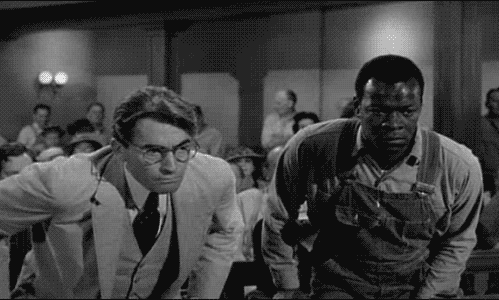
Inspired by real-life cases, To Kill a Mockingbird features a criminal trial in which an African-American man, Tom Robinson, who was falsely accused of raping a white woman, is represented by a local white attorney. For the duration of the trial, several townspeople plot to kidnap and lynch Robinson, confident that none of them will be prosecuted for the crime. The movie spans three years during which the lawyer, Atticus Finch, a widower and single father, also teaches his daughter and son to think for themselves and to not accept the casual but rampant racism that pervades their 1930s Alabama town.
17. When They See Us
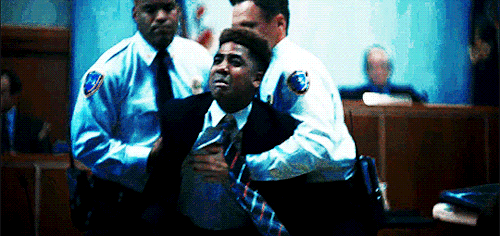
When They See Us is a scripted depiction of the notorious real-life Central Park Five case. Though many Netflix viewers cited it as hard to watch, When They See Us perfectly captures the plight of many minority men in America.
16. Do the Right Thing
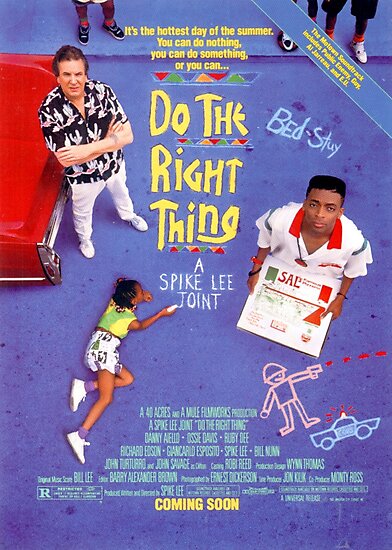

Do the Right Thing was released 31 years ago and sadly, it's as timely as ever. Inspired by then-recent front-page stories about African Americans being killed either by police officers or white mobs, Do the Right Thing is director Spike Lee's third feature, following She's Gotta Have It and School Daze. While those two films explored topics such as casual sex, classism within the African American community, colorism and student activism, Do the Right Thing provided fiery social commentary on everything from gentrification and alcoholism to racism and police brutality.
Set in the writer/director's beloved Brooklyn, Do the Right Thing is the story of one especially hot summer day on one street in the borough's Bedford-Stuyvesant section that begins like any other and ends in horrifying tragedy.
Early in the day, while visiting local eatery Sal's Famous Pizzeria, neighborhood resident and b-boy Buggin' Out, asks the shop's owner why his "Wall of Fame", which features pictures of several Italian American celebrities, doesn't include any African Americans. When Sal, who lives in predominantly Italian American Bensonhurst instead of Bedford-Stuyvesant, refuses to add African Americans, Buggin' Out attempts to organize a protest, which is only supported by two of his neighbors: "Radio" Raheem, a taciturn, muscle-bound young man who constantly plays militant rap group Public Enemy's protest anthem "Fight the Power" loudly on his boombox; and "Smiley", a developmentally disabled man with a speech impediment who spends his days selling pictures of slain civil rights leaders Martin Luther King Jr and Malcolm X.
Meanwhile, the daytime deejay at a local radio station, Mister Senor Love Daddy, provides regular updates on the steadily rising temperature and commentary on the events that he sees outside of his window.
Later, "Mookie", a 25-year-old delivery guy who works at Sal's (the only employee who's not family), which has been in the predominantly African American neighborhood as long as Mookie has, argues with his employer's oldest son Pino about race. Pino subsequently urges Sal to move the store to another area, citing his contempt for African Americans, from whom the vast majority of the pizza parlor's revenue is derived. And when Sal shares a friendly exchange with Mookie's younger sister, Jade, with whom he shares an apartment, big brother cautions her to keep her distance from his boss.
That evening, Buggin' Out, accompanied by Radio Raheem and Smiley, shows up at the pizza shop and informs Sal of his intention to call for a boycott of the latter's business if he doesn't add pictures of African Americans to his wall. An argument then ensues, with Buggin' Out and Sal trading racial slurs. Angered, Sal destroys Raheem's box with his baseball bat, prompting the latter to attack him. Pino and his brother Vito, in turn, attack Raheem. Police arrive during the fight and immediately subdue Buggin' Out and Raheem, one of whom kills the latter with an illegal choke-hold in full view of a swiftly gathering crowd. After the officers leave with Buggin' Out and Radio Raheem's body, Mookie throws a garbage can through Sal's front window, prompting the crowd to storm the shop and destroy the contents. Smiley, who joins the rioters, proceeds to set the pizza place on fire. Longtime local resident "Da Mayor" defends Sal and his sons from the wrath of the crowd shortly before firefighters arrive to battle the blaze and prevent the rioters from destroying the nearby Korean-owned grocery as well. However, when riot police show up, they direct the firemen to turn their hoses on the assembled neighborhood residents. Smiley makes his way into the burned-out building and attaches one of his pictures to Sal's "Wall of Fame".
The following day, after arguing with Tina, the Puerto Rican mother of his son, Hector, Mookie returns to the pizza parlor to demand his paycheck from Sal, which ignites an argument between the two. Senor Love Daddy then dedicates a song to Raheem.
The film ends with two quotes about violence. One, from Martin Luther King, Jr.:
"Violence as a way of achieving racial justice is both impractical and immoral. It is impractical because it is a descending spiral ending in destruction for all. The old law of an eye for an eye leaves everybody blind. It is immoral because it seeks to humiliate the opponent rather than win his understanding; it seeks to annihilate rather than to convert. Violence is immoral because it thrives on hatred rather than love. It destroys community and makes brotherhood impossible. It leaves society in monologue rather than dialogue. Violence ends by destroying itself. It creates bitterness in the survivors and brutality in the destroyers."
The other, from Malcolm X:
"I think there are plenty of good people in America, but there are also plenty of bad people in America and the bad ones are the ones who seem to have all the power and be in these positions to block things that you and I need. Because this is the situation, you and I have to preserve the right to do what is necessary to bring an end to that position, and it doesn't mean that I advocate violence, but at the same time I am not against using violence in self-defense. I don't even call it violence when it's self-defense, I call it intelligence."
The quotes are followed by a dedication to the following African American victims of racial violence, including murder-by-cop: Michael Stewart, Edmund Perry, Michael Griffith, Arthur Miller Jr., Eleanor Bumpurs and Yvonne Smallwood.
At the time of its release, reviewers and media publications covering the film voiced concerns that the movie might incite African American audience members to riot. However, no violence surrounding the film was ever reported and Lee himself criticized the racist suggestion that African Americans were so lacking in self-control; civility; and the ability to distinguish between life and fiction that they'd be moved to violence by imaginary drama.
Thoroughly contemporary in its time, decades later Do the Right Thing provides a snapshot of late 1980s inner-city living and style, replete with box haircuts and Air Jordans before they were retro. This is also a time before noise pollution fines kept guys like Radio Raheem from holding walking rap concerts on neighborhood sidewalks. Today, not only would Radio Raheem wear earbuds but his neighbors likely would've captured his murder on their cellphones to be uploaded for the world to see -- though the police officer responsible might still go unpunished.
Do the Right Thing is notable for featuring comedian Martin Lawrence and choreographer-turned-actress Rosie Perez in their first film roles. While the movie received Oscar nominations for Best Original Screenplay and Best Supporting Actor (for Danny Aiello), it's widely believed that Do the Right Thing was snubbed by the Academy of Motion Picture Arts and Sciences for a Best Picture nomination. The award ultimately went to Driving Miss Daisy (which is widely regarded as racially-insensitive), which beat out Born on the Fourth of July, Dead Poets Society, Field of Dreams and My Left Foot at the 62nd annual Academy Awards ceremony on March 26, 1990.
In 2014, President Barack Obama revealed that Do the Right Thing was the movie that he took wife Michelle to see on their first date.
Do the Right Thing is also noteworthy for featuring Public Enemy's classic protest song "Fight the Power", which Radio Raheem plays throughout the film.
15. Fruitvale Station

Fruitvale Station is based on the real-life fatal shooting of 22-year-old Oscar Grant by Transit Police Officer Johannes Mehserle in Oakland, California -- while Grant was handcuffed on lying on his stomach. Fruitvale is the first scripted movie to examine one of the highly-publicized incidents in the recent wave of African-American males murdered by police on video. Station was named one of the top 10 films of 2013 by the American Film Institute (AFI).
14. Get Out


Get Out's manner of depicting racism is more metaphorical than literal but the point is still made.
Most important about this film are the subtle comments and commentary about society and racism and racial profiling. From the parents in the film who 'speak the language' to the use of African Americans as the 'hired hand' and 'maid' of the estate to the very subtle use of cotton in a key moment of the film, this is a very smart and well made film that everyone should pay attention to and learn from.
13. If Beale Street Could Talk


If Beale Street Could Talk, an adaptation of William Baldwin's 1974 novel, is a love story, set not on the schmaltzy plains of romantic comedy but in the suffocating confines of the real world inhabited by poor African-Americans.
The couple, 22-year-old Alonzo "Fonny" Hunt and 19-year-old Clementine "Tish" Rivers, find their already beseiged dreams take a nosedive when Fonny is arrested and charged with rape. The two Harlem natives have known each other all of their lives and were best friends for years before realizing that they were in love. Tish knows that Fonny's innocent, not only because he's morally incapable of commiting such an act, but also because he was with her and a friend (Daniel) at the time that the assault took place. A racist police officer reported that he'd witnessed Fonny running from the scene of the crime before he apprehended him at his home -- an impossibility given the distance between apartments and times involved. However, the victim, Victoria Rios, subsequently picked Fonny out of a line-up.
To further complicate matters, Tish reveals that she's pregnant, which is very welcome, albeit frustrating news to Fonny, given that he's facing the prospect of only seeing his child during jail visits. With the support of her family, Tish delivers the news of her pregnancy to Fonny's family. While Fonny's father, Frank, is overjoyed at the prospect of becoming a grandfather, Fonny's sister and mother react negatively to the announcement and don't even bother to conceal their disdain for Tish. Mrs. Hunt even goes so far as to curse the unborn baby, which elicits a slap from Frank. Shortly after he leaves with Joseph (Tish's father) to celebrate at a bar, Frank's wife and daughters are unceremoniously excused from the Rivers' home.
Realizing that Fonny's legal defense will cost more money than they make at their respective jobs, Frank and Joseph decide to raise funds by stealing clothes and selling them.
As though things couldn't get any worse, the police arrest Daniel in an attempt to discourage him from testifying on Fonny's behalf. Then, Fonny's attorney learns that Victoria Rios has disappeared, and consequently, won't be available for him to cross-examine. Meanwhile, the horrors of jail are taking a toll on Fonny's morale and overall psyche.
After the families learn that Victoria has fled to her native Puerto Rico and raise enough money for the journey, Tish's mother, Sharon, follows her to the island. When Sharon finally speaks to Victoria it becomes clear that she never got a good look at her attacker. But she refuses to return to New York to testify. After Tish fills Fonny in on the situation, he decides to accept a plea deal. The film then flashes forward years later as Tish and Alonzo Jr. visit Fonny in prison.
The film maintains a dream-like quality throughout, which, because of the non-linear presentation of the story's events, often descends into nightmare. The euphoria is propelled, in part, by a sublime score. If Beale Street Could Talk is a period piece that offers an up-close-and-personal look at issues (namely, police corruption, institutional racism, a broken criminal justice system, sexual harassment and assault and false accusations) that plague us today.
Beale Street is remarkably similar to 2017's criminally underrated Crown Heights, based on the true story of Colin Warner, a New Yorker and African-American man who was wrongfully convicted of murder in 1980. Warner spent 20 years in prison before the efforts of his lifelong friend, Carl King, led to his release. Films like Crown Heights and Beale Street aren't similar due to Hollywood's age-old tendency towards exhaustive imitation but rather because the stories that they tell are, tragically, all too common.
12. The Birth of a Nation

Chris Rock's 2014 movie Top Five features the comedian as a movie star who headlines the fictional film Uprize as Dutty Boukman, the real-life educated slave who inspired the Haitian Revolution. The Revolution, a slave revolt which resulted in the permanent end of French rule on the island of Hispaniola and the founding of Haiti, has never been represented in an actual movie.
The Birth of a Nation depicts another piece of American history that isn't taught in public schools. The film details, for the first time onscreen, the events that transpired leading up to, during, and following a bloody 1831 slave rebellion in Southhampton County, Virginia. The leader of the uprising, Nat Turner, was a literate slave and minister who led an eventual 70 co-conspirators in a house-to-house mutiny that resulted in the killing of approximately 65 wealthy white men and women. Though he initially planned to begin the revolt on July 4, Independence Day, it was postponed due to illness until Turner interpreted an August 13 solar eclipse as a black man's hand covering the sun and took it as a signal to initiate his revolution.
The Birth of a Nation's title, in a bit of intentional irony, is appropriated from a 1915 silent movie of the same name that portrayed the Ku Klux Klan as a heroic organization and, in fact, spurred a resurgence in the group's membership and popularity.
Nation is the kind of film that's difficult for African-Americans to watch. Seeing your ancestors being degraded, tortured, mutilated, sexually abused and murdered is no easy thing -- not even when you know that all of these actions are being done to, and carried out by, actors. One particularly disturbing scene details a plantation owner's solution to an attempted hunger-strike. A slave's teeth are broken one-by-one and food is slid down the funnel that is forced down his throat. Another scene reveals an overseer in bed with a little girl. As graphic as they are, not including scenes like these would only serve to further perpetuate a distorted and incomplete view of history. These are the kinds of things that happened to actual people -- repeatedly. And it's important that they be acknowledged -- by everyone.
Nation is by no means the first film to present the horrors of American slavery on the big screen. In fact, 12 Years a Slave, also based on a true story, won the Best Picture Oscar at the 86th Academy Awards. What makes Nation the first of its kind is its presentation of an actual slave insurrection against plantation owners.
An old adage states: "History is written by the winners." Is it odd that Spartacus, and now Nat Turner, both leaders of ultimately unsuccessful slave rebellions, have made it to the big screen and the Haitian Revolution never has?
11. Monsters and Men
10. The Central Park Five
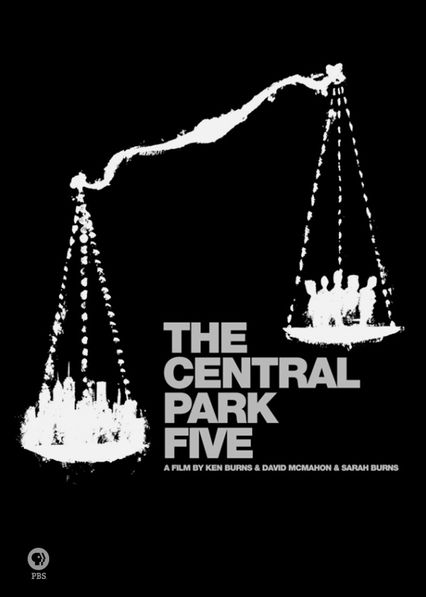
Famed documentarian Ken Burns explores how four African-American teens and one Latino were pressured by police into confessing to a heinous crime that they hadn't committed; prosecutors subsequently railroaded the quintet into lengthy prison sentences. And celebrity businessman Donald Trump, the newsmedia and the Clintons used them to further demonize minority men in America.
9. American Son
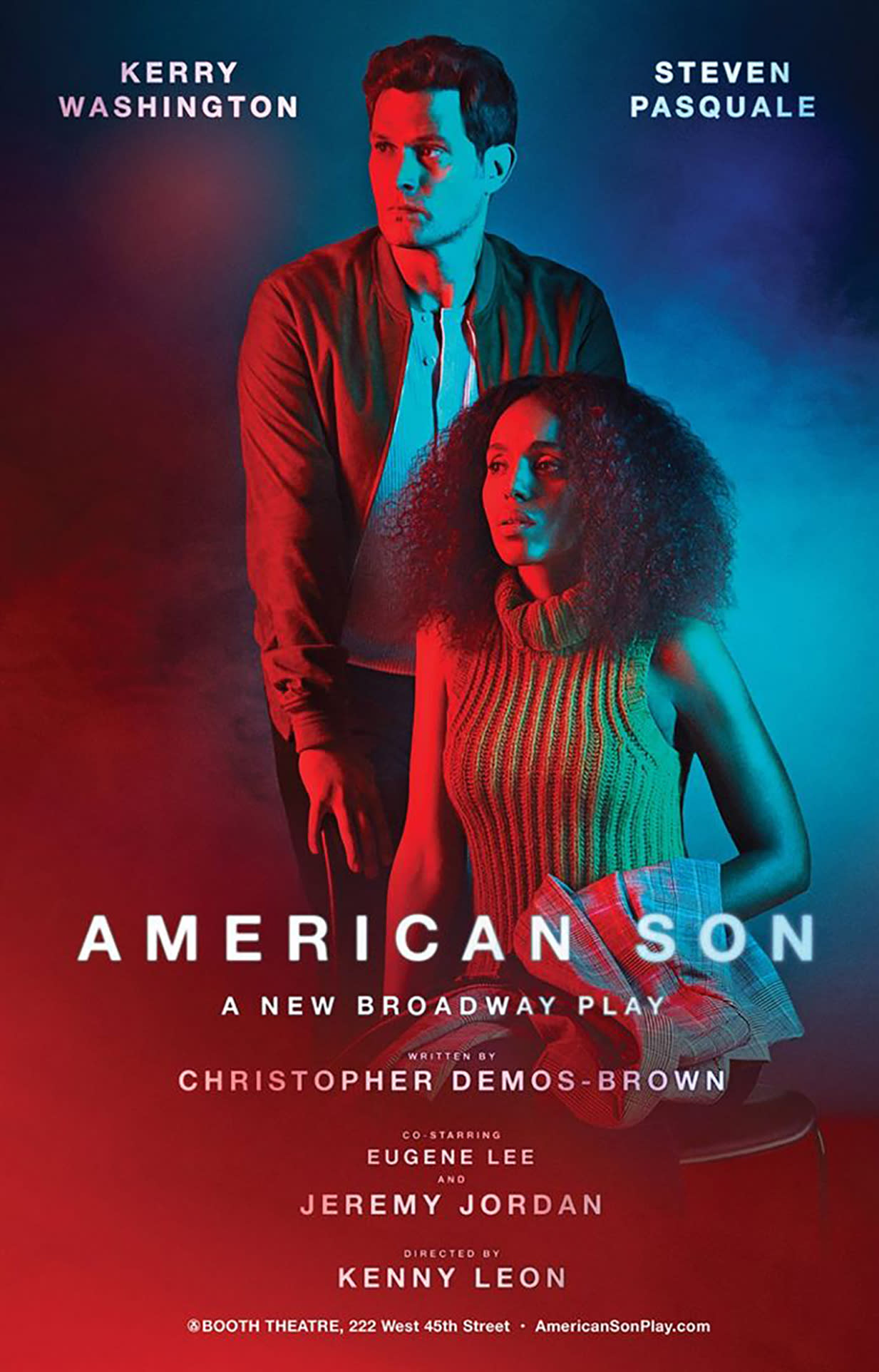
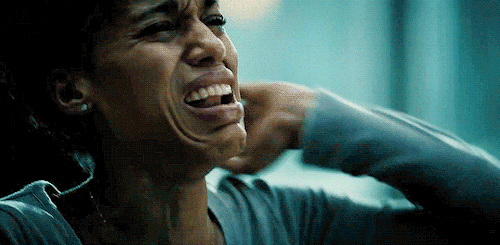
After being notified that her son was involved in an altercation with law enforcement, an African-American mother spends a long night in a police station in search of more information.
8. 13th
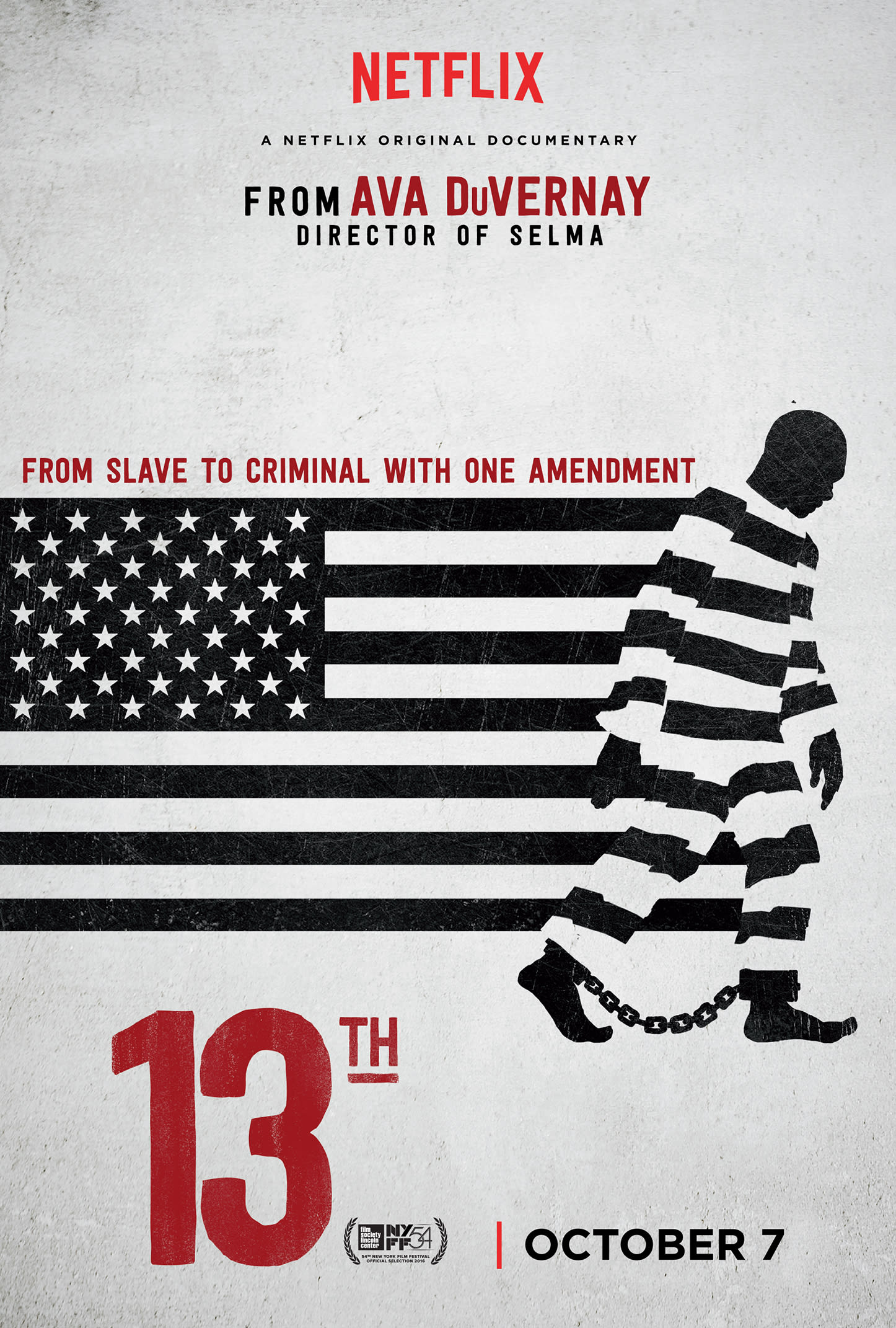
13th, directed by Ava Duvernay (who also directed 2014's Selma), centers on a loophole built into the amendment which has been used to justify legal human bondage ever since its ratification in 1865. The amendment reads: " Neither slavery nor involuntary servitude, except as a punishment for crime whereof the party shall have been duly convicted, shall exist within the United States, or any place subject to their jurisdiction." The film illustrates how that highlighted section has allowed convicted criminals to be effectively enslaved to this very day. One of the many things the documentary points out is the fact that no distinction whatsoever is made between horrendous crimes and petty misdemeanors. 13th explores the varied interrelated institutions at play including: racism; the relationship between the government and the private for-profit prison industry, which depends on criminal convictions for its survival; the "War on Drugs"; and the powerful, yet secretive coalition between U.S. politicians and Corporate America - ALEC.
ALEC (American Legislative Exchange Council) is a forty-year-old organization comprised of conservative, mostly Republican, lawmakers and corporation heads that has been responsible for drafting legislation aimed at furthering right-wing, corporate agendas for decades. This is roughly the way it works: Group members (both political and private sector) propose bills, which the legislators introduce to their respective legislative bodies, without ever divulging the true origin of said bills. During the 1980s, ALEC opposed U.S. efforts to end apartheid in then-segregated South Africa. Past members include: former Speaker of the House John Boehner; Ohio governor John Kasich; and North Carolina Senator Jesse Helms. While ALEC was effectively outed in 2011 by The Nation and later The New York Times, Bloomberg Businessweek and "The Daily Show", 13th points out that it continues to thrive and remains largely unknown to the American public. After it was dragged out of the shadows, many of ALEC's corporate members cut their ties for fear of fallout from the association, including: Wal-Mart; Google; Facebook; Coca-Cola; Blue Cross and Blue Shield; Wendy's; McDonald's; Amazon; Apple; GE; Procter & Gamble; Ebay; Yahoo!; Microsoft; BP; T-Mobile; and CCA.
CCA (Corrections Corporation of America), the largest owner and manager of private prisons in the country, profits from crime bills it promoted as a member of ALEC before rescinding its membership. The aforementioned crime bills, including the federal three-strikes Law, mandatory minimums, and stop-and-frisk policies insured a steady influx of inmates, largely African-American and Hispanic, into their institutions. The film also points out that ALEC introduced the controversial stand-your-ground law, which allowed the then-29-year-old George Zimmerman to legally pursue and kill unarmed 17-year-old Trayvon Martin.
Pfizer, AT&T, ExxonMobil and State Farm Insurance are still active ALEC members.
Duvernay interviews dozens of people on all sides of the issues covered here, including: politicians, including Charles Rangel and Newt Gingrich; professors; social activists, including Angela Davis; former inmates; and social pundits, both conservative and liberal. Video footage (filmed years prior to their canditorial declarations) of the two current presidential front-runners, Donald Trump and Hillary Clinton, is presented in which each one gives an argument for incarcerating African-American men. Trump is featured in a clip decrying the Central Park 5 -- a group of African-American teenagers who were coerced by NYPD detectives into confessing to raping and violently assaulting a white female jogger, Trisha Meili, in New York's Central Park. He took out full-page ads in New York's four major newspapers advocating capital punishment for the teens. The young men were ultimately exonerated by DNA evidence after having served between six to 13 years in prison. Clinton gives her now-infamous speech labeling African-American teens as "super-predators". It's a wonder that so much ground is covered in the doc's scant 100-minute running time.
One of the most surprising moments of the film is Republican power-broker and Trump-supporter Gingrich declaring that white Americans have no idea what it's like to be African-American.
13th was filmed in secret and on September 30, 2016, became the first documentary to open the New York Film Festival. 13th's subject matter is not common knowledge - but it should be. See it immediately. If you have a Netflix account you can do just that.
7. The Hate U Give
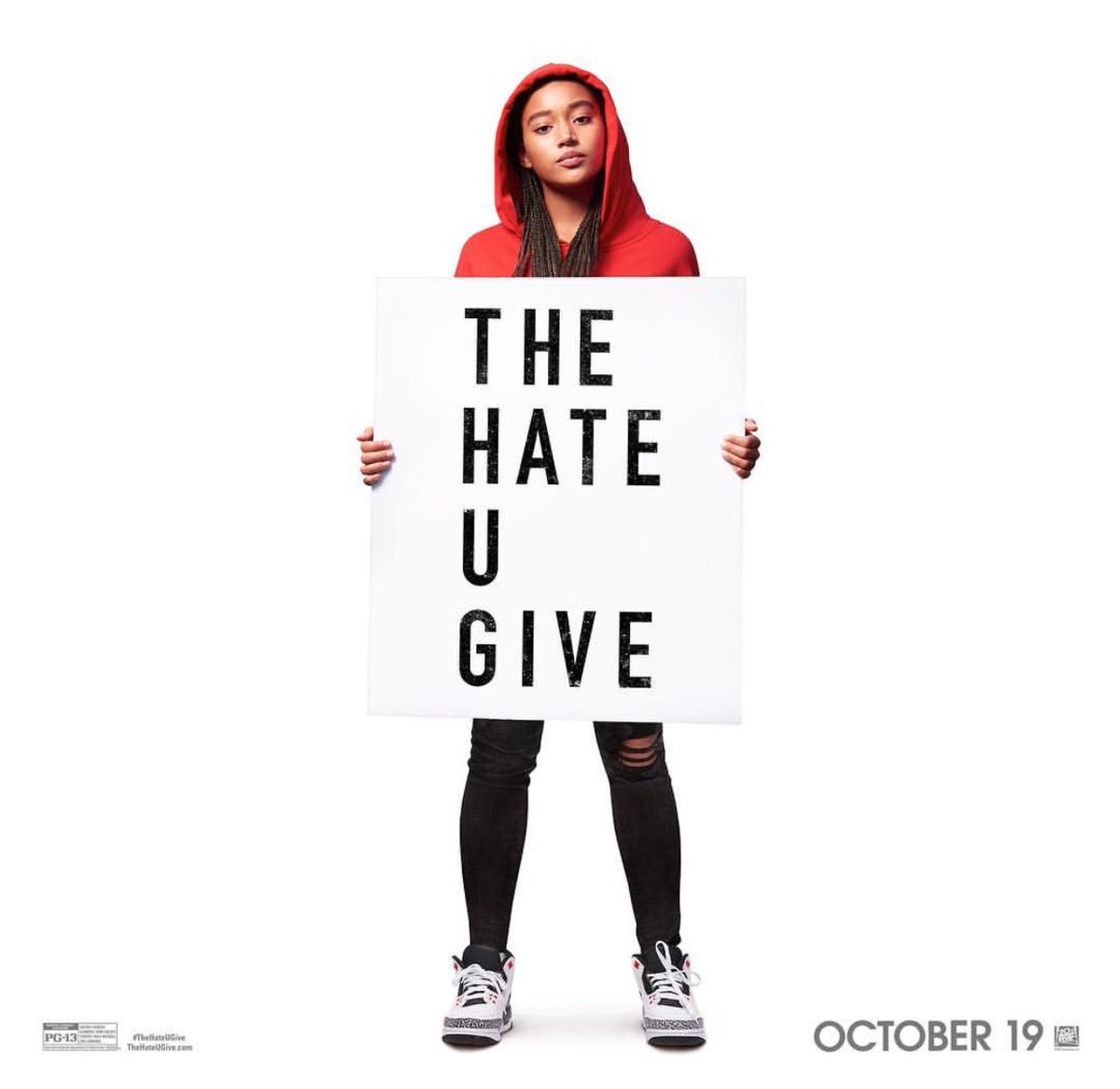
![The Hate U Give | Official Trailer [HD] | 20th Century FOX GIF ...](https://thumbs.gfycat.com/LimpGaseousBrocketdeer-size_restricted.gif)
More than any other movie this year, The Hate U Give conveys the African-American Millenial experience. And like Blindspotting, released earlier this year, Hate also delves into multi-generational issues such as code-switching and murder-by-cop.
Both movies feature a fatal shooting of an unarmed African-American male by a white police officer. Unlike the relatively recent spate of police murders captured on video, there is only one eyewitness -- aside from the cop. The remainder of the films explore the effects that the shootings have on the witnesses.
In the case of Hate, the witness, Starr Carter, was a childhood friend of the victim, Khalil Harris. The two are pulled over for failure to signal a lane change on an empty street when Khalil drives Starr home from a house party. After Khalil is ordered out of the car, he's shot to death by the officer.
What follows is Starr's struggle to come to terms with the death of her friend, her efforts to achieve justice for Khalil while remaining anonymous, and her continued fight to be accepted by her predominantly African-American community without being solely defined by her ethnicity at her predominantly white high school. Despite Starr's wish to blend in and be a "normal" teenager, the seed of social activism planted in her by her father begins to grow.
The title is derived from the acronym (The Hate U Give Little Infants F#cks Everyone) that rapper and actor Tupac Shakur gave to the social movement and hip-hop group that he founded -- Thug Life.
6. Marshall
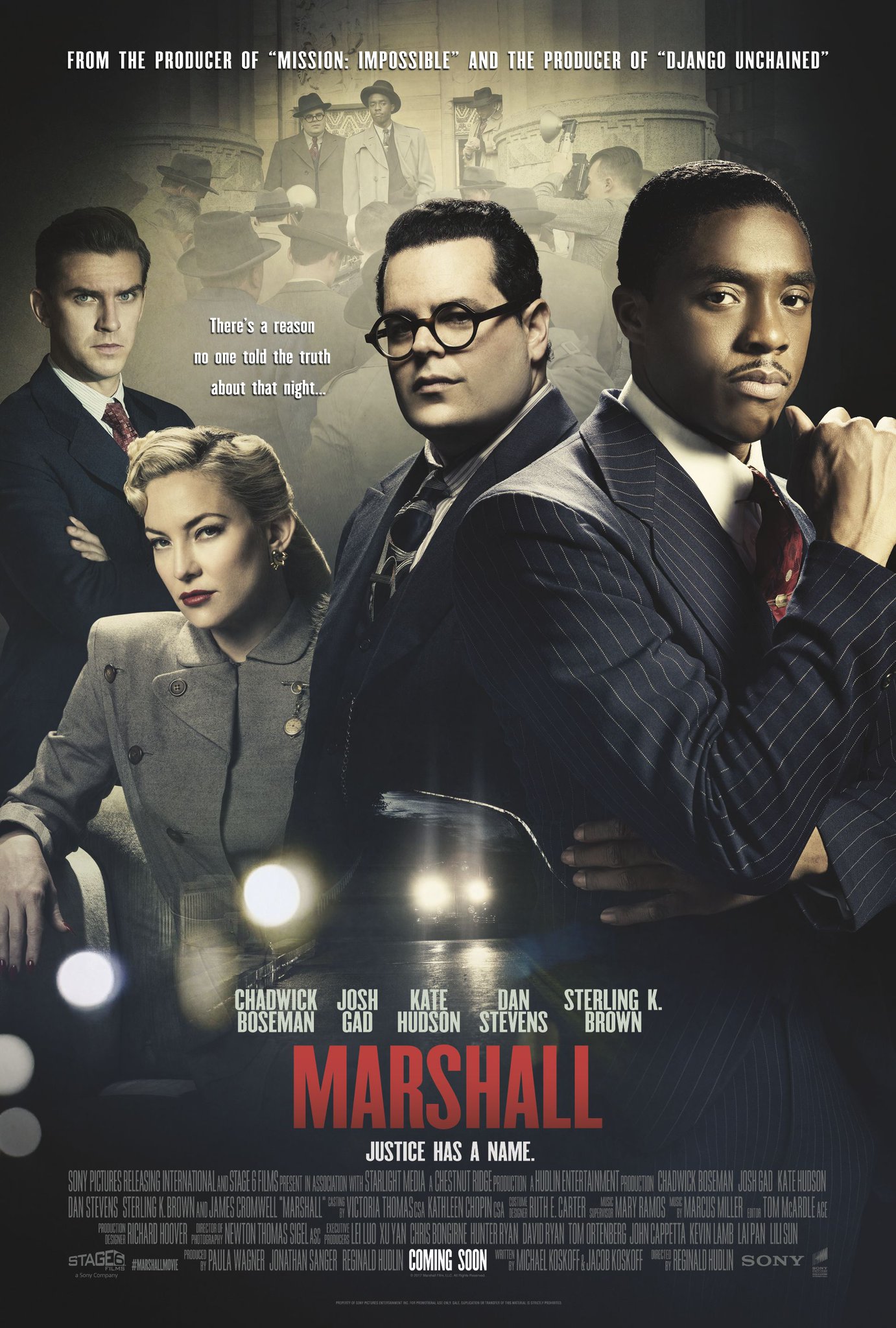

Thurgood Marshall made history in 1967 when he became the very first African-American U.S. Supreme Court justice. But the film that bears his name is set much earlier in the legal pioneer's career. Marshall takes place in 1940 and 1941 when a then 33-year-old Marshall was still a practicing attorney employed by the NAACP. The movie focuses on his involvment in the State of Connecticut v. Joseph Spell case. The case centered on a white woman, Eleanor Strubing, who accused her African-American chauffeur, Spell, of rape, kidnapping and attempted murder. Because the presiding judge, Carl Foster (a friend of prosecutor Lorin Willis' family), prohibited Marshall from speaking in the courtroom, he teamed with local, caucasian insurance attorney Samuel Friedman (in reality, Friedman was hired because it was believed that the white jury would more readily identify with him than with Marshall). Under Marshall's guidance, Friedman's cross-examination of Strubing exposed inconsistencies in her story. It was ultimately revealed in court that she and Spell had engaged in consensual sex and that Strubing made the false accusation out of fear that her extramarital liason with a Black man might be exposed by an accidental pregnancy. After more than 12 hours of deliberation, Spell was acquitted by the all-white jury, eliciting audible gasps in the courtroom.
Marshall retired in 1991, 16 months before his death, and was consequently succeeded by Clarence Thomas. Fifty-two years after Marshall's appointment, Thomas, who still sits on the Supreme Court bench, is the last African-American justice to join the court.
5. Just Mercy

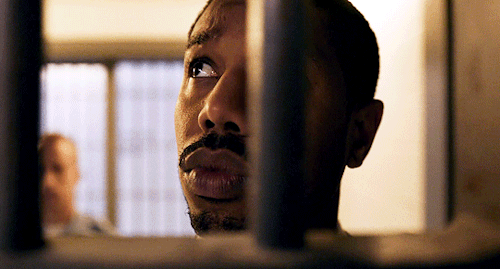
Just Mercy is the film adaptation of attorney Bryan Stevenson's critically-acclaimed 2014 memoir Just Mercy: A Story of Justice and Redemption. Focusing primarily on Stevenson's attempts to free a wrongfully-convicted African-American man sentenced to the death penalty in Monroeville, Alabama, Just Mercy is a rarity among Hollywood movies about racism -- a savior film that features Black people being saved by a Black person. The movie highlights the astounding level of institutional racism within the Alabama (and American) justice system -- which persists to this day. Some moviegoers may initially have trouble comprehending the magnitude of the problem and believing the extraordinary lengths to which those in power went in order to uphold a system of oppression.
Interestingly enough, director Destin Daniel Cretton strongly indicts the caucasian male members of the communities involved. But though history tells a different story, the movie goes out of its way to absolve white women of any complicity in connection to the systemic racism that it depicts.
A courtroom drama that outshines genre favorites like A Few Good Men, A Time to Kill, Primal Instinct and Philadelphia, Just Mercy rivals To Kill a Mockingbird. Ironically, the author of the book on which that movie was based, Harper Lee, was a native of Monroeville.
The movie begins with the 1987 arrest of Monroeville entrepreneur Walter McMillian, whose accused of murdering a local 18-year-old white woman, Ronda Morrison. After moving to Alabama and finding local commercial property owners reluctant to rent to an advocate for Death Row inmates, Harvard Law grad and Delaware native Stevenson moves in with the family of Eva Ansley, a local woman horrified by the Alabama justice system's mistreatment of poor defendants.
Initially refusing to work with the young attorney due to his previous lawyer's ineptitude, McMillian finally comes around following Stevenson's acceptance by his family and community.
McMillian eventually reveals that he was transported to Death Row immediately after his arrest, where he remained for more than a year before his trial. He was also at a fish fry attended by several witnesses, one of whom was a police officer, during the time of the murder. He was targeted by law enforcement and the judicial system not merely because he was African-American but because he was an African-American man who'd engaged in a public affair with a white woman.
In the absence of any physical evidence, the state's case depended entirely on witness testimony. And the primary witness, career criminal Ralph Myers, was indicted as a co-conspirator and offered a 30-year sentence in lieu of the death penalty in exchange for his testimony. Following the trial judge's decision to relocate the proceedings to a nearby overwhelmingly white county, McMillian was convicted by 11 white (with one African-American) jurors and sentenced to life in prison. Unsatisfied, the presiding judge set the jury's sentence aside and imposed the death penalty.
Stevenson's fight to secure McMillian's freedom even included a segment on 60 Minutes.
Onscreen, Stevenson endures police intimidation, legal stonewalling and reluctance to come forward on the part of witnesses to obtain justice for just one client. Would you believe he's gone on to save 125 men from death sentences?
Just Mercy should be required viewing, particularly for those concerned with the need for criminal justice reform.
4. Blindspotting

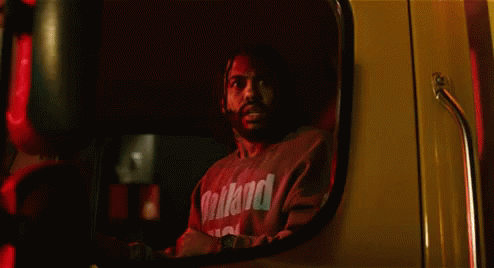
With only three days left on his parole for assault, Collin Hoskins witnesses an unarmed Black man being fatally shot in the back by a white police officer. With freedom looming and his release from a halfway house right around the corner, Collin tries to put the murder out of his mind so that he can fully assimilate back into society.
His friendship with his hot-headed right-hand man, Miles, whose criminal behavior threatens to get him sent back to prison; his complicated relationship with his ex-girlfriend and current co-worker, Val; the gentrification of his Oakland, California neighborhood; and his money problems give him plenty to think about, but he still can't get the shooting off his mind.
The story climaxes when Collin and Miles, who both work at a moving company, arrive at the address of a job and Collin discovers that it's the home of the cop that he saw kill a man.
Friendship, identity, racial politics, police
3. 12 Years a Slave
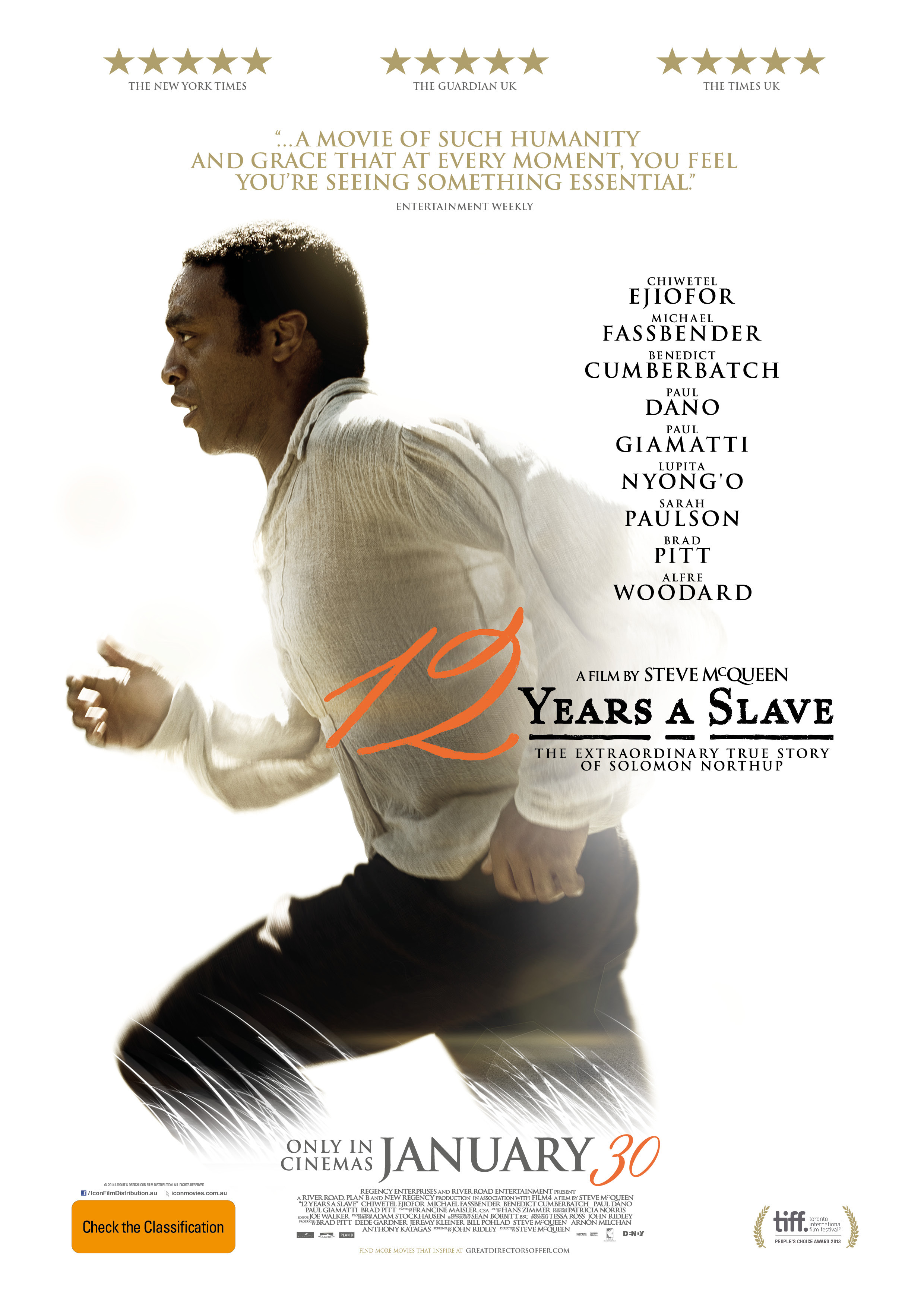
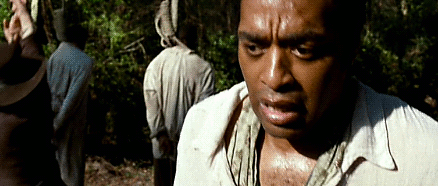
12 Years a Slave is the film adaptation of Solomon Northrup's 1853 memoir of the same name detailing his kidnapping and subsequent enslavement on a cotton plantation in Louisiana. Though tough to watch, 12 Years importance in illustrating the living conditions endured by enslaved African Americans can't be overstated.
2. Selma
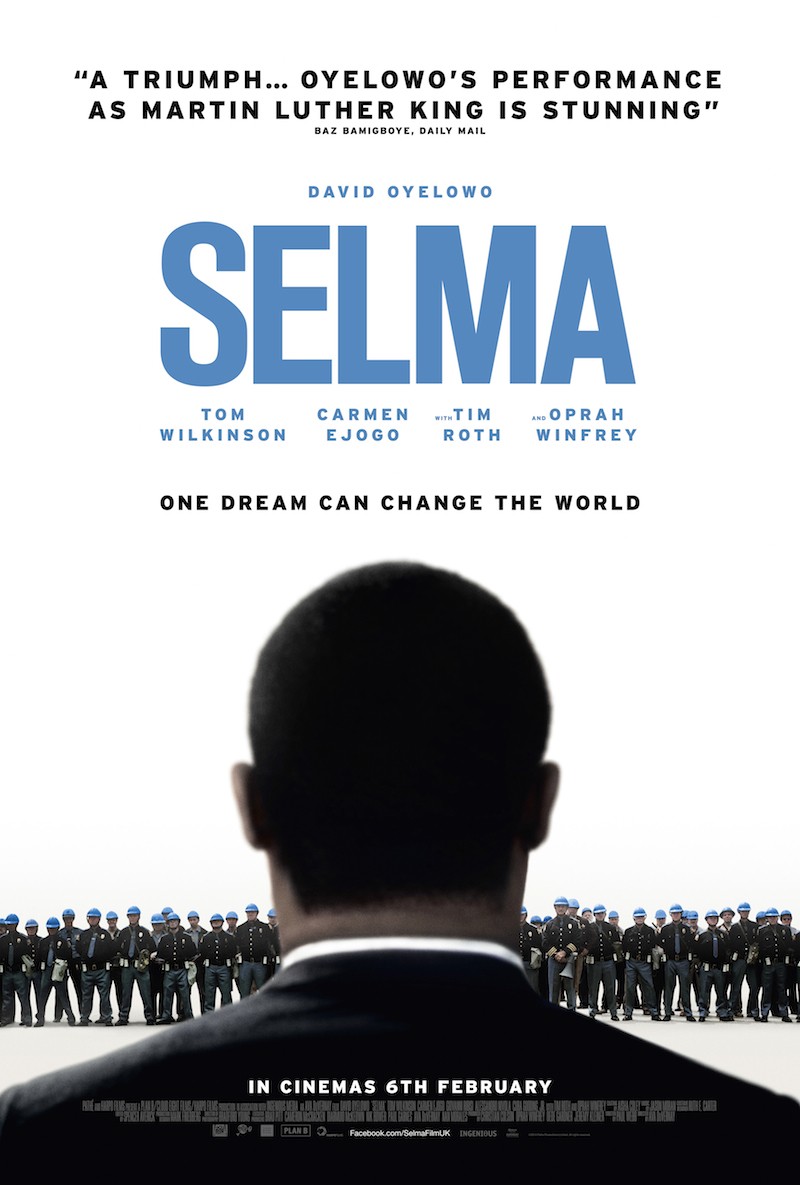

Selma is the Dr. Martin Luther King, Jr. film that got it right. And better than anyone could have hoped. Like previous non-documentary films featuring the civil rights leader, it's not about King. The title is appropriate because the focus of the film is the series of protest marches conducted in 1965 in Alabama in order to pressure lawmakers into legislating protection for the voting rights of African-Americans.
Selma feels legitimate. It's neither a sweeping, grandiose epic nor a melodramatic character study into the depths of a famous person's soul. It's a matter-of-fact depiction of events in the lives of history-making, celebrated men and women. In some cases, the film is a glimpse into the political beginnings of future elected officials. The film notes that Andrew Young was ultimately appointed UN Ambassador by President Carter after serving three terms in Congress, and was later twice-elected to the U.S. House of Representatives in 1986 and has served in Congress ever since. Hosea Williams went on to serve on the Atlanta City Council, Georgia General Assembly and Dekalb County Commission, one of the few Georgia politicians to ever be elected to seats in city, county and state government.
1.Malcolm X


Based on the ferociously intelligent civil rights leader's legendary autobiography, published in 1965 -- the same year that its subject was assassinated -- Malcolm X is a film that was begging to be made. Though the man was murdered nearly three decades earlier, the years that preceded the movie's release were marked by an intense resurgence in interest in his life.
The movie begins in Malcolm Little's childhood, a point in his life when his father, a minister, was murdered by members of the Black Legion -- an offshoot of the Ku Klux Klan -- and his mother was committed to a mental institution. From there we get a glimpse of his criminal career, when he was known by the street name Detroit Red in the Harlem underworld. Following a stint as a porter, "Red" makes a living running numbers for his mentor, West Indian Archie. After Archie makes an attempt on his life, Red flees to Boston, where he establishes a robbery ring and that includes his married white girlfriend.
After his Massachusetts licks land him a 10-year prison sentence, Red meets a member of the Nation of Islam behind the wall who inspires him to abandon criminality and to educate himself. His new mentor, Baines, facilitates an introduction to the group's leader, Elijah Muhammad, upon his release. After joining the Nation, the newly named Malcolm X (the "X" symbolizes the unknown African name that was taken from his ancestors during slavery) quickly rises to be the organization's most well known speaker. He preaches self-sufficency, Black Pride and aggressive rejection of white society and institutional racism, the latter of which contrasts sharply with Dr. Martin Luther King's message of peaceful protest. During an appearance at a Harlem rally, X delivers one of his most famous speeches, in which he warns: "I say and I say it again, Ya been had! Ya been took! Ya been hoodwinked! Bamboozled! Led astray! Run amok! This is what he does..." He also utters the following line (paraphrased for the film) from his "Ballot or the Bullet" speech, delivered in 1964: "We didn't land on Plymouth Rock, Plymouth Rock landed on us!" X also befriends and mentors boxing legend turned civil rights activist Muhammad Ali.
During an obligatory pilgrimage to the ancient city of Mecca (birthplace of Islamic prophet, Muhammad) , X has an epiphany that transforms his rejection of whites to a more inclusive philosophy. However, his new views conflict with those of Elijah Muhammad, leading to X's departure from the group that he made famous. On February 21, 1965, X is assassinated while giving a speech at Harlem's Audubon Ballroom.
The film ends with a montage of U.S. and African children saying the simple phrase, "I am Malcolm X." After repeating the phrase himself, anti-apartheid activist Nelson Mandela recites a quote from one of X's speeches: "We declare our right on this earth, to be a human being, to be respected as a human being, to be given the rights of a human being, in this society, on this earth, in this day, which we intend to bring into existence by any means necessary."
In 1990, the year prior to the movie's production, Mandela was released from prison after serving a 27-year sentence for activities against the South African government for its practice of segregation and racial oppression against Black people. In 1994, he was elected the first Black president of the country.




Well I have only seen 7 of the films on this list but can honestly say each and everyone I did see was amazing so I can only imagine how the remaining films are and will be adding them to my to-watch list.
ReplyDeleteHere is my run down:
‘To Kill a Mockingbird’ - what can I say except that this is a film classic.
‘Get Out’ - scary, funny, insightful, very much an eye-opener in terms of race relations and done in an ingenious way. Great film!
‘If Beale Street Could Talk’ - this was a hard one to watch but it had brilliant acting in it. A very good movie.
‘The Hate U Give’ - I read the book so knew I would have to see the film. The producer and director did a great job of staying true to the book in my opinion and helped open the dialogue about racism.
‘Fruitvale Station’ - man, oh, man did this film about break me. What a brilliant and powerhouse performance by Michael B. Jordan. What a heartbreaker but an amazing film!
‘Just Mercy’ - I read and absolutely loved this book and could not wait to see this film. Needless to say I was not disappointed and once again, a brilliant performance by Michael B. Jordan. We cannot forget that of Jamie Foxx either and the complete outright injustice his character went through. To think he lost all those years of being with his family and loved ones because of the ignorance and racism of another human being.
‘12 Years A Slave’ - I will never forget the night I saw this film as it moved me in ways - and not the right ways either - that a film had not done in a long time. I could not help but be angry, shocked and had to cry at the torture and torment the main character went through in this film. It was just one that sparked outrage in me. There is one scene in particular that I just cringe when I think about it and don’t think I could watch this film again because of it. All of the performers in this film are amazing but especially Chiwetel Ejiofor and Lupita Nyong’o. Oh that last scene of the movie when she is standing there just kills me as she knows how the remainder of her life is going to be. This is a critical movie in the history of filmmaking and I know it is one that I shall never forget. This is an absolutely brilliant - but gut-wrenching - film!